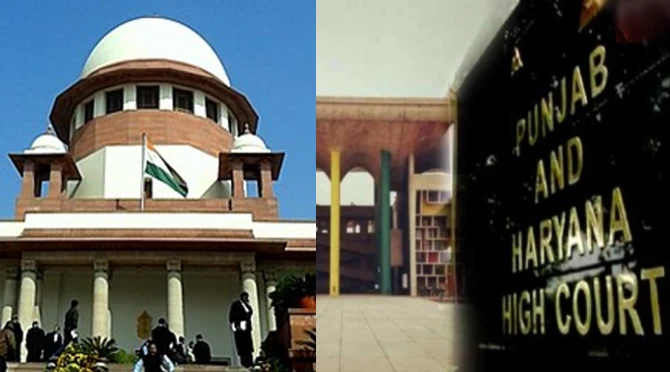
The Supreme Court on Wednesday (August 7) expunged the “scandalous” and “unwarranted” observations made by a single judge bench of the Punjab and Haryana High Court against the apex court in a contempt case.
A five-judge bench, led by Chief Justice of India (CJI) D.Y. Chandrachud, decided not to initiate proceedings against Punjab and Haryana High Court Judge Rajbir Sehrawat for his critical remarks.
“We are of the view that the gratuitous observations by the single judge was absolutely unnecessary and unwarranted. Compliance with Supreme Court direction is not a matter of choice but a matter of binding legal system which overlooks the process of judicial adjudication in the country,” the bench remarked.
The bench, which also included Justices Sanjiv Khanna, B.R. Gavai, Surya Kant, and Hrishikesh Roy, emphasized “judicial discipline” and called for greater caution when dealing with orders from higher courts. They asserted that neither the apex court nor high courts hold ultimate supremacy, which actually resides in the Constitution of India.
The bench, which had taken suo motu cognizance of the matter, expressed its disappointment with the high court judge’s observations. It noted that the high court’s order contained “unnecessary” comments on various issues. It highlighted that judges should not be aggrieved by the orders of higher courts and must maintain judicial discipline.
Justice Sehrawat had criticized an apex court order that stayed contempt proceedings initiated by the high court. In his order dated July 17, he remarked, “Seen at a psychological plane, this type of order is actuated, primarily, by two factors: firstly, a tendency to avoid owning responsibility for the consequences that such an order is likely to produce, under the pretense that a stay of contempt proceedings does not adversely affect anybody; and secondly, a tendency to presume the Supreme Court to be more ‘Supreme’ than it actually is, and to presume a High Court to be less ‘High’ than it constitutionally is.”




